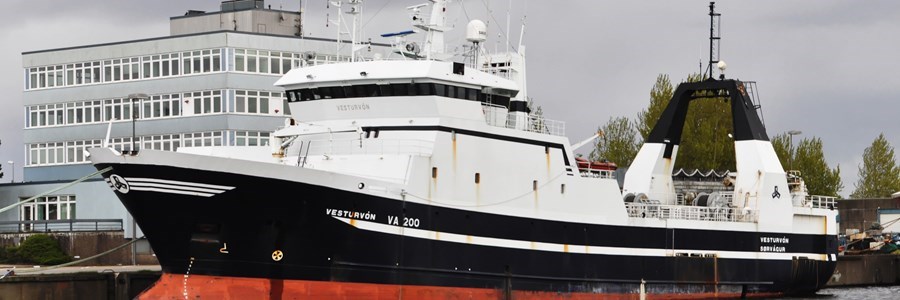Europêche satisfecho con el resultado de las negociaciones del trilogo sobre el Reglamento de la flota pesquera externa

El Consejo de la UE y el Parlamento Europeo han alcanzado un acuerdo político sobre un nuevo marco legislativo para la gestión sostenible de las flotas pesqueras externas. El nuevo régimen establece normas estrictas, transparentes y armonizadas para la expedición y gestión de autorizaciones de pesca a los buques de la UE que pescan fuera de las aguas comunitarias ya los buques extranjeros que faenan en aguas de la UE. Mientras Europêche coincidía en la necesidad de modernizar el sistema, el organismo pesquero instó a la supresión de determinadas disposiciones que amenazaban la supervivencia de las empresas pesqueras responsables. En este sentido, la asociación de pescadores celebra que su llamado a eliminar el infame "sistema de doble penalización" del texto del Reglamento fue finalmente aprobado por los colegisladores.
The Regulation has been revised in order to adapt to the new objectives enshrined in the new Common Fisheries Policy. It aims to improve governance, increase transparency, better monitoring and enforcement of the rules. However, in order to achieve these targets, in certain cases such as direct licenses[1], transshipments or reflagging, it will create an extra administrative burden for the operator. Since the beginning of the legislative process, Europêche has advocated the need to strike the right balance between more control and simplification so as to allow our operators to continue fishing in a sustainable and profitable manner.
This balance would have been deeply affected by the introduction of the ‘double penalty system’, which was disproportionate, since the operator would have been subject not only to strong penalties, but also to the non-eligibility to obtain an authorisation for 12 months.
The new law introduces however positive provisions to improve governance and fight against illegal fishing by establishing the obligation to obtain a unique vessel identification number granted by the International Maritime Organisation (IMO) where required by Union legislation. The measure, supported by Europêche, will help prevent fraud since the IMO number remains linked to the ship for its lifetime, regardless of a change in name, flag or owner.
The creation of a public database for fishing authorisations is also welcomed by the sector since it will increase transparency. However, Europêche applauds that following intense negotiations, policy-makers did finally not decide to make certain information public, as recommended by the fishing body. This information refers to private and confidential data such as the name and address of the beneficial owner of the company or the fishing opportunities. This sensitive information will continue to be highly monitored and controlled by governments and the European Commission.
Javier Garat, President of Europêche stated: ‘Pending the final text of the Regulation, we are generally satisfied with the outcome of the trilogue negotiations since it has eliminated distressing provisions such as the ‘double penalty system’. It should be noted, however, that the new Regulation imposes greater costs and administrative burdens on EU operators to prove the sustainability of their fishing activities. The fishing industry is required once again by the EU to make an extra-effort to adapt to and comply with new stringent rules.’
Garat concluded: ‘The EU needs now to promote globally these principles and high standards. Only then can a true international level-playing field be achieved and compete in equal conditions with other big fishing nations. The EU long-distance fleet will continue playing a leadership role on sustainability and best practices.’
Ends
Europêche represents the fisheries sector in Europe. Currently, the Association comprises 15 national organisations of fishing enterprises from the following 10 EU Member States: DE, DK, ES, FR, IT, MT, NL, LV, PL, UK.
Press contacts:
Daniel Voces, Acting Managing Director of Europêche: +32.2.230.48.48 daniel.voces@europeche.org
[1] ‘Direct authorisation’ means a fishing authorisation issued by a third country competent authority to a Union fishing vessel outside the framework of a sustainable fisheries partnership agreement.
Sources: Europeche
Attachments:
Tags: FAR, flota de larga distancia, SFPA, RFMO, doble penalización, flota pesquera externa, Trilogue